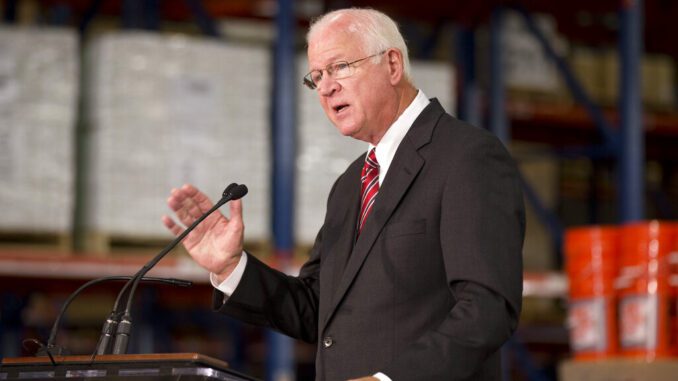
The most successful and vibrant economies in the world today all have something essential in common: a constantly evolving, robust technology sector. Technological advancement is tied to virtually every facet of a successful society –national security, capabilities in medicine and science, new digital developments that businesses and job creators use to catalyze economic growth, and cyber security advancements.
The Tar Heel state is no exception.
Across North Carolina, but specifically in The Triangle, the tech industry had the fifth highest growth rate in the U.S. during the pandemic. Raleigh, Durham and Chapel Hill’s prioritization of innovation and growing reputation as a tech hub has attracted investments from large domestic tech companies, as well as small startups looking to capitalize on a growing market.
But while the U.S. tech sector remains the best in the world and North Carolina’s tech hub continues to grow, our nation’s competitive edge could be at risk as Congress considers a package of anti-innovation legislation that would diminish economic growth and weaken national security. With record-high inflation, prices for everyday goods continuing to increase and cyberattacks from foreign adversaries on the rise, the stakes are too high to get this wrong.
Year after year, foreign adversaries’ technological progress grows more threatening to the interests of the U.S. and our allies. The Chinese government’s increasing manipulation of the internet to stifle political dissent and artificial intelligence to surveille their people, for instance, has become increasingly alarming. China has also made clear its desire to influence future standard setting for technology beyond its own borders, as outlined in the China Standards 2035 plan.
As China and Russia vie for tech dominance on the world stage and continue to undermine our security, steal our personal data, and launch ransomware attacks against our universities, we must take steps to safeguard and sustain, not weaken, our competitive advantage.
It is paramount that legislators enact smart policy solutions that will promote American tech innovation – a necessary component of promoting a free and open internet, protecting our citizens and allies, supporting job creators, and ensuring that foreign adversaries do not successfully execute cyberattacks on American infrastructure, not pursue misguided and low priority legislation targeting our most innovative companies.
And a new poll by Ipsos, commissioned by the American Edge Project, confirms just that. Voters want their elected officials to address high priority matters such as inflation and cost of living (88% priority), protecting American national security (86% priority), jobs and the economy (85% priority), lowering gas prices (83% priority), and health care (82% priority). These voters believe that pursing anti-innovation legislation will harm the economy, smack businesses and our national security.
While much has changed in the national and global technology landscape since I served in the U.S. Senate, one thing that remains is the need to protect our nation’s technological edge. The cutting-edge technologies of today, like artificial intelligence, quantum computing, and machine learning, are a direct product of strong innovation from our domestic tech sector and support the realities of our every day. If lawmakers fail to support U.S. tech companies at this pivotal moment in history, we will be disincentivizing innovation, harming business owners in North Carolina and across the U.S., and weakening vital defenses against foreign adversaries.
Saxby Chambliss is a former U.S. senator from Georgia and current advisory board member of the American Edge Project. During his tenure in the Senate, he served as vice chairman of the Senate Select Committee on Intelligence from 2011 to 2015 and as chairman of the Senate Agriculture Committee from 2005 to 2006.



